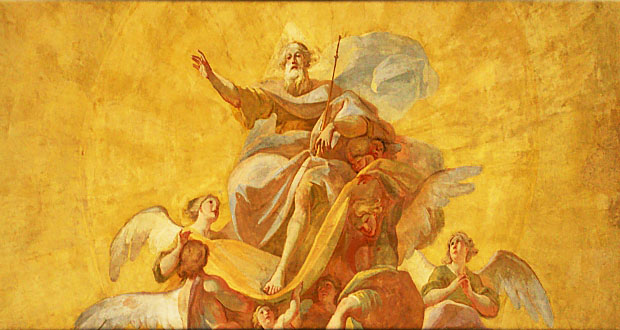To be human is to think of the future, to imagine the unknown, and to fear the unpredictable. So many things are not in the control of human beings who seek certainty about the future and a foreknowledge of outcomes. Yet no one is omniscient about the future, and no amount of careful planning can perfectly determine the results or eliminate the element of chance.
In Robert Frost’s poem “Good-By and Keep Cold,” a farmer who has planted an orchard worries about all the harm that threatens young trees in winter:
“I don’t want it girdled by rabbit and mouse,
I don’t want it dreamily nibbled for browse
By deer, and I don’t want it budded by grouse.”
In addition to the harm posed by these animals, the farmer also feels apprehensive because of the fickleness of the weather: “No orchard’s the worse for the wintriest storm; /But one thing about it, it mustn’t get warm.” He wishes he could watch the orchard day and night and provide it constant protection from the animals and from the elements. However, the human condition makes the farmer all too aware of his limitations. He can only do so much.
Other obligations direct his attention and care to distant trees and keep him from keeping the close watch on the young orchard that he wishes: “I have to be gone for a season or so. /My business lies with other trees… And such as is done to their wood with an ax.” However, the farmer has done all that is humanly possible. He planted the orchard in the safest, most sheltered spot “(We made it secure against being, I hope, /By setting it out on a northerly slope).” He playfully gives the orchard his best advice with careful instructions: “Keep cold, young orchard. Good-by and keep cold.” The farmer has done all that human prudence and good judgment allow in planting, tending, protecting, and taking precautions. For him to say “good-bye,” then, does not provoke panic or nervousness about the future because of his absence. The farmer knows that he alone does not determine the future or provide all the protection and care the orchard needs. He reflects,
“I wish I could promise to lie in the night
And think of an orchard’s arboreal plight
When slowly… / Its heart sinks lower under the sod. But something has to be left to God.”
The art of living, then, is to learn not to worry about the many things that lie beyond human control or foreknowledge. To do one’s best and all in one’s power, to exercise vigilance and caution in little things and great things, and to use the human wisdom one possesses and the good counsel others provide and then leave the rest to God is to trust Divine Providence. As Blessed Cardinal John Henry Newman said, a person should act “according to the best lights” he has and then leave the rest to God’s hands. This advice of course also informs the Sermon on the Mount when Christ teaches, “Do not be anxious about your life, what you shall eat or what you shall drink” and “Look at the birds of the air: they neither sow nor reap nor gather into barns, and yet your heavenly father feeds them.”
In George MacDonald’s At the Back of the North Wind the young boy Diamond teaches his fretful, anxious mother this same lesson. Troubled that her injured husband is unemployed and unable to provide for his family, she is filled with dread for the future: “Mr. Coleman’s lost his money, and your father has nothing to do, and we shall have nothing to eat by and by.” Diamond reassures his mother that the birds survive the winter and that he has always found plenty to eat, either from his mother’s table or aunt’s cupboard. When the mother warns Diamond that there is no infinite supply of food in a cupboard, he replies with childlike innocence, “How do you know? I think there must be a big cupboard somewhere, out of which the small cupboards are filled, you know, mother.”
How do you teach the lesson on not worrying about the things beyond human control?Header Image CC David HRABÁLEK

 Seton Magazine Catholic Homeschool Articles, Advice & Resources
Seton Magazine Catholic Homeschool Articles, Advice & Resources
